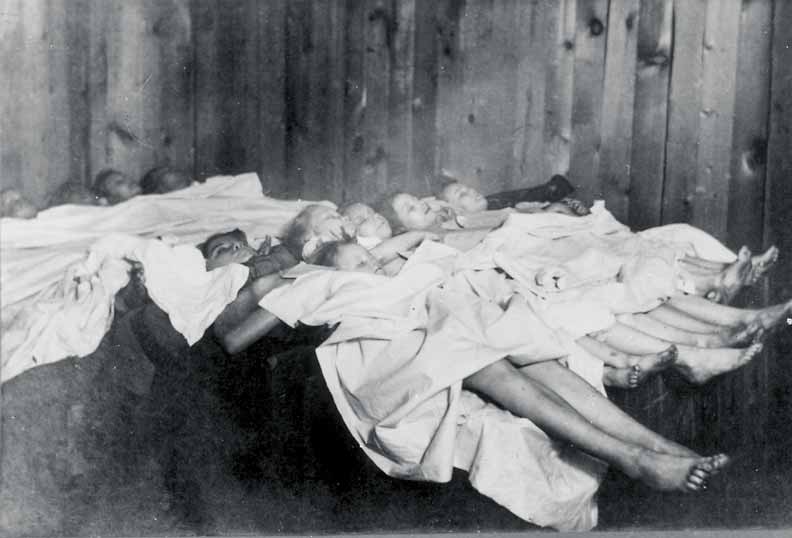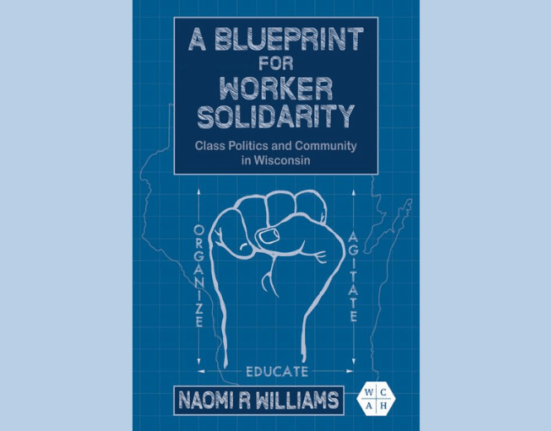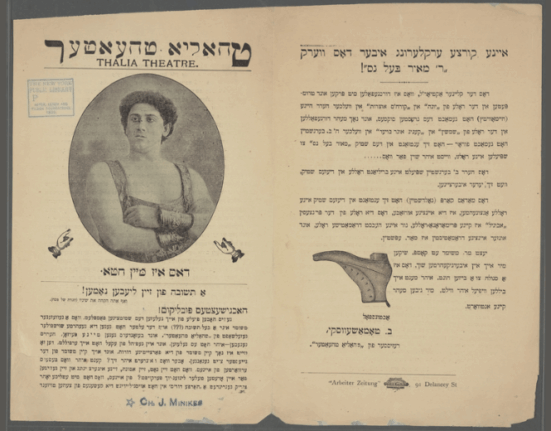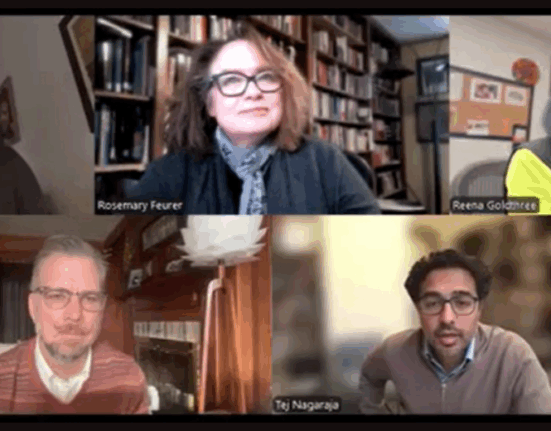This post was originally published in 2013.
Today, Christmas Eve, 2013, marks the 100-year anniversary of the Italian Hall Tragedy in Calumet, Michigan, one of the most tragic events in American labor history. The tragedy at Italian Hall came six months into the great Michigan Copper Country Strike of 1913-14, an epic struggle that matched thousands of mineworkers and their families, organized under the banner of the Western Federation of Miners (WFM), against the united power of Michigan’s Copper Kings. Waged after years of union and socialist organizing, the mineworkers struggled for a variety of reasons, including the 8-hour day, recognition of the WFM as their union; and the removal of the one-man drill, a labor-saving device which, if fully implemented, promised to drastically reduce the number of mineworkers employed in the region and to create more unsafe working conditions.

Already struggling after six months on strike and trying to cope with a frigid Upper Peninsula winter, the striking mineworkers and their families were having a Christmas party hosted by the Calumet Women’s Auxiliary of the WFM whose preesident was militant activist and socialist “Big Annie” Clemenc. The party at the Italian Hall was intended as a chance for the strikers’ children to have a night of fun amid several months of deprivation. After the distribution of presents there was to be a Mother Goose–style play that evening. That all turned tragic in a few short moments. A call of “Fire!” led to a panicked exodus from the second-floor hall, and a pileup of bodies at the bottom of the hall’s steep stairs. An estimated 73-79 people, including approximately 60 children, lost their lives that day at Italian Hall from suffocation.
Woody Guthrie’s classic song “1913 Massacre” speaks to the pain felt by the dozens of working-class families who lost friends and relatives at Italian Hall. It also echoes the beliefs of Copper Country unionists and radicals by laying blame for the disaster squarely at the feet of the mine bosses, “gun thug” strikebreakers, and the Copper Country Citizens’ Alliance, a businessmen’s vigilante organization formed to break the strike.
1913 Massacre by Woody Guthrie

Take a trip with me in 1913,
To Calumet, Michigan, in the copper country.
I will take you to a place called Italian Hall,
Where the miners are having their big Christmas ball.I will take you in a door and up a high stairs,
Singing and dancing is heard everywhere,
I will let you shake hands with the people you see,
And watch the kids dance around the big Christmas tree.You ask about work and you ask about pay,
They’ll tell you they make less than a dollar a day,
Working the copper claims, risking their lives,
So it’s fun to spend Christmas with children and wives.

There’s talking and laughing and songs in the air,
And the spirit of Christmas is there everywhere,
Before you know it you’re friends with us all,
And you’re dancing around and around in the hall.Well a little girl sits down by the Christmas tree lights,
To play the piano so you gotta keep quiet,
To hear all this fun you would not realize,
That the copper boss’ thug men are milling outside.The copper boss’ thugs stuck their heads in the door,
One of them yelled and he screamed, “there’s a fire,”
A lady she hollered, “there’s no such a thing.
Keep on with your party, there’s no such thing.”A few people rushed and it was only a few,
“It’s just the thugs and the scabs fooling you,”
A man grabbed his daughter and carried her down,
But the thugs held the door and he could not get out.And then others followed, a hundred or more,
But most everybody remained on the floor,
The gun thugs they laughed at their murderous joke,
While the children were smothered on the stairs by the door.Such a terrible sight I never did see,
We carried our children back up to their tree,
The scabs outside still laughed at their spree,
And the children that died there were seventy-three.The piano played a slow funeral tune,
And the town was lit up by a cold Christmas moon,
The parents they cried and the miners they moaned,
“See what your greed for money has done.”
Today, people across Michigan and beyond will halt their holiday festivities to pay respects to the victims of this great tragedy. And, today, as we commemorate the lives of the workers and working-class children who lost their lives at Italian Hall, let us not forget that they died in the midst of a climatic labor struggle waged by thousands of mine workers for an 8-hour day, a measure of control over their workplaces, and the right to unionize. Let us draw inspiration from the sacrifices of Michigan’s Copper Country workers and their families as we wage our own struggles for workers’ rights in the fiercely anti-union environment of the twenty-first century United States.






